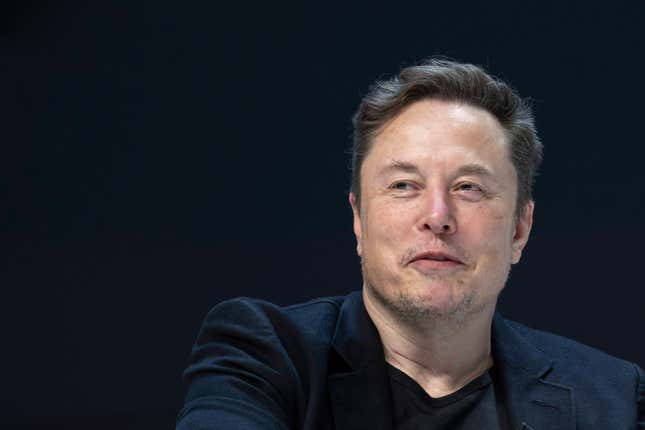
In This Story
Elon Musk launched his artificial intelligence startup xAI last July, and it now has “the most powerful AI training system in the world.”
The training cluster, called Colossus, is powered by 100,000 Nvidia H100 graphics processing units, or GPUs, and is expected to double in size to 200,000 chips, including 50,000 of Nvidia’s more powerful H200 chips, “in a few months,” Musk said. While AI rivals including OpenAI and Meta also have hundreds of thousands of Nvidia’s chips, Colossus, which was brought online in about four months, has the most processors of an individual AI computing cluster in the world.
“Excellent work by the team, Nvidia and our many partners/suppliers,” Musk said on his social media platform, X.
Colossus will be used to train the next generation of xAI’s large language model (LLM) called Grok, which is meant to rival OpenAI’s GPT-4. Musk said xAI expects to release Grok-3 by December.
In June, xAI announced it had chosen Memphis, Tenn. to house its supercomputer. Both Dell Technologies and Super Micro Computer have partnered with xAI to build the supercomputer. Dell chief executive Michael Dell congratulated Musk on X, saying, “it’s an honor for @DellTech to be part of this important AI training system.”
xAI raised $6 billion in a Series B funding round in May, which included heavyweight investors such as Andreessen Horowitz and Sequoia Capital. The round pushed xAI’s valuation to $24 billion.
Meanwhile, xAI is facing blame from local advocates in Memphis for making pollution worse from its use of gas-powered turbines, as smog in the city exceeds national air quality standards. In a letter to the Shelby County Health Department in August, the Southern Environmental Law Center said xAI’s supercomputer “requires an enormous amount of electricity,” and that the startup “has installed at least 18 gas combustion turbines over the last several months” to meet that demand, with more possibly coming.
The startup “apparently has not applied” for the air permits required before installation and operation of some of the turbines, the SELC said. The environmental nonprofit is asking the health department to confirm if xAI is operating its turbines without an air permit, and to order the startup to stop operating until it gets the permit.